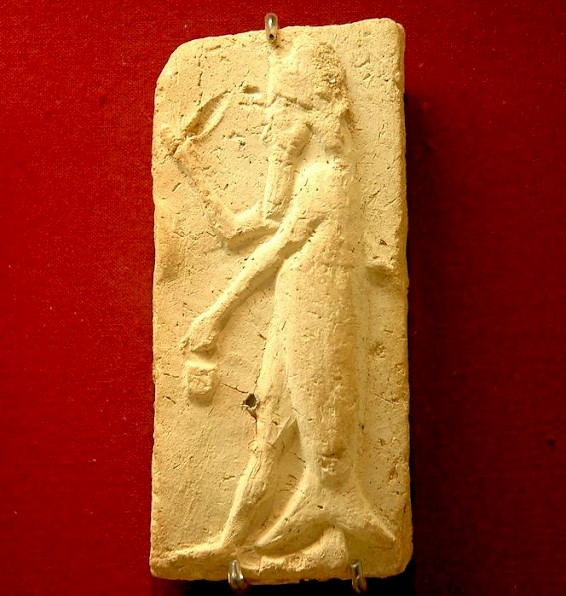Berossus
Berossus (Akkadian Bêl-re'ušunu): Babylonian priest, who wrote a Greek history of Babylonia in the first half of the third century BCE.

The Babylonian History or Babyloniaka of Berossus is dedicated to the Seleucid king Antiochus I Soter, who ruled from 281 to 261 BCE. If we are to believe the Christian author Tatian (died c.120 CE), the Babylonian History was published in Antiochus' third year, 278 BCE.note The same author states that Berossus was born during the reign of the Macedonian conqueror Alexander the Great, who held court in Babylon in the spring of 323.
Berossus, who is called Bêl-re'ušunu in cuneiform documents, was a very important official: he was šatammu, head of the temple organization, between 258 and 253 BCE. This office gave him access to the archives of the Esagila, the temple of the Babylonian supreme god Marduk. Using cuneiform texts like the Babylonian chronicles (for the composition of some he must have been responsible) he wrote his three books of Babylonian history. They are unfortunately only known from quotations by later authors (e.g., Flavius Josephus).
Still, we can reconstruct the Babylonian history. After some topographical remarks, Berossus told us first how a mysterious creature called Oannes -half fish, half man- came from the sea and showed mankind writing, farming and the arts. The first book also contained a description of the epic struggle between the gods, culminating in the victory of Marduk (text). In the second book, ten legendary kings are mentioned that have ruled before the Great Flood; the Flood itself was the climax of the second book. After this story, Berossus treated several kings and sages, until he had reached the reign of Nabû-nâsir (747-734). The final book is the only one that may be called 'historical' in our sense of the word: several Assyrian, Babylonian and Achaemenid rulers were mentioned - all from a Babylonian perspective. The death of Alexander on 11 June 323 BCE seems to have been the last event mentioned by Berossus.
Several Greek and Roman authors (e.g., Pliny the Elder) state that Berossus founded a school of astrology on the Greek island Cos and received a statue in Athens. It is unclear whether this information is reliable. His Babyloniaca was summarized in the first century BCE by a scholar named Alexander Polyhistor. This excerpt was used by Flavius Josephus and the church father Eusebius.
Literature
- Gerald P. Verbrugghe & John M. Wickersham, Berossos and Manetho. Introduced and Translated (1996 Ann Arbor)
- Bert van der Spek, 'The Šatammus of Esagila in the Seleucid and Arsacid Periods' in: Joachim Marzahn and Hans Neumann, Assyriologica et Semitica. Festschrift für Joachim Oelsner (2000 Münster) pages 437-446.
- Bert van der Spek, "Berossus as a Babylonian Chronicler and Greek Historian," in: id. (ed.), Studies in Ancient Near Eastern World View and Society, Preseented to Marten Stol on the Occasion of his 65th Birthday (2008) 277-318